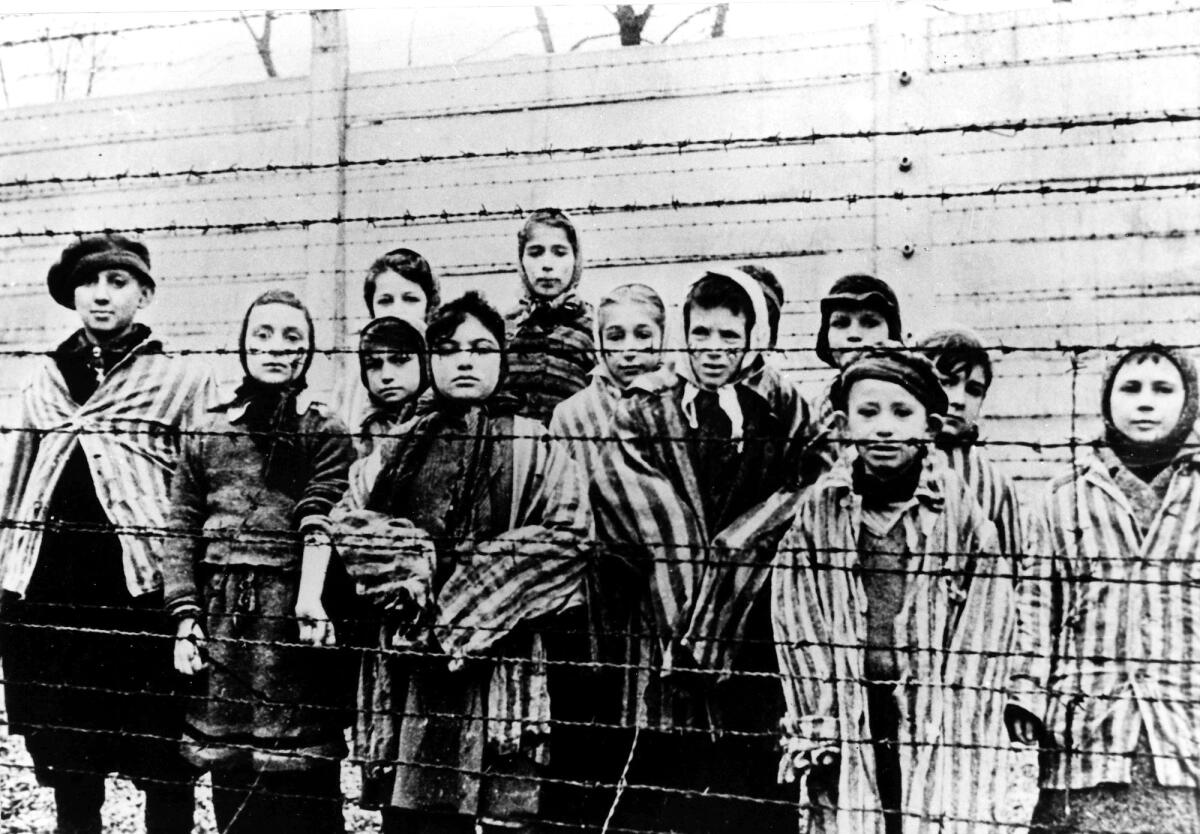Germany to give $662 million in coronavirus aid to Holocaust survivors

BERLIN — Germany has agreed to provide $662 million in aid to Holocaust survivors struggling under the burden of the COVID-19 pandemic, the organization that negotiates compensation with the German government said Wednesday.
The payments will go to about 240,000 survivors around the world, primarily in Israel, North America, the former Soviet Union and Western Europe, over the next two years, according to the New York-based Conference on Jewish Material Claims Against Germany, also referred to as the Claims Conference.
With the end of World War II now 75 years ago, Holocaust survivors are all elderly, and because many were deprived of proper nutrition when they were young, many of them suffer from numerous maladies today. In addition, many live isolated lives, having lost their entire families, and bear other psychological scars from their persecution by the Nazis.
“There’s this kind of standard response for survivors, that ‘we’ve been through worse, I’ve been through worse and if I survived the Holocaust, through the deprivation of food and what we had to go through, I’ll get through this,’” Greg Schneider, executive vice president of the Claims Conference, said in a telephone interview from New York with the Associated Press.
“But if you probe deeper, you understand the depths of [the] trauma that still resides within people.”
Many are also on the poverty line, and the additional costs of masks and other protective gear, grocery delivery and other pandemic-related expenses has been crushing for many, Schneider said.
An 88-year-old Holocaust survivor became the first, and so far only, Israeli to die of COVID-19.
“You’re teetering between making it every month, having to decide between food, medicine and rent,” he said.
The new funds are aimed at Jews who aren’t receiving pensions already from Germany, primarily people who fled the Nazis and ended up in Russia and elsewhere during the war.
Schneider said about 50% of Holocaust survivors in the U.S. live in Brooklyn and were particularly hard hit when New York was the center of the American outbreak. But now numbers are looking worse in Israel and other places.
“It’s a rolling calamity,” he said.
In these frightening times, I am struck by the heroic and merciful acts I first encountered as a young child behind barbed wire.
Each of those survivors will receive two payments of about $1,400 each over the next two years, for an overall commitment of about $662 million.
The funds come on top of an emergency $4.3 million that the Claims Conference distributed in the spring to agencies providing care for Holocaust survivors.
In addition to the coronavirus-related funds, Germany agreed in the recently concluded round of annual negotiations to increase funding for social welfare services for survivors by $36 million, to a total of $651 million for 2021, the Claims Conference said.
Germany’s Foreign Ministry had no immediate comment on the latest round of negotiations.
The money is used for services including funding in-home care for more than 83,000 Holocaust survivors and assisting more than 70,000 with other vital services, including food, medicine, transportation to doctors and programs to alleviate social isolation.
As a result of negotiations with the Claims Conference since 1952, the German government has paid more than $80 billion in Holocaust reparations.
Part of the Claims Conference’s annual negotiations involves working with Germany to expand the number of people eligible for compensation.
This year, the German government agreed to recognize 27 “open ghettos” in Bulgaria and Romania whose survivors are now entitled to compensation.
More to Read
Sign up for Essential California
The most important California stories and recommendations in your inbox every morning.
You may occasionally receive promotional content from the Los Angeles Times.











